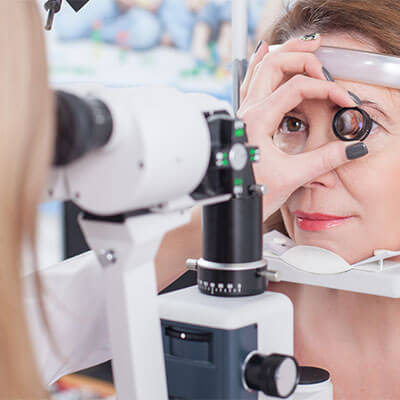Catching Glaucoma Early Before Vision Loss Occurs
For many of us, we welcome the New Year with resolutions to start things off right: eat healthier, exercise more frequently, spend more time with family or friends. The list is endless it's important that there is one you aren't forgetting: taking better care of your eyes.
January is National Glaucoma Awareness Month and I want to make sure that you know, not only what glaucoma is, but why early intervention is crucial.
Glaucoma is a disease that damages the main nerve in our eyes, known as the optic nerve. This nerve is responsible for sending messages from your eyes to the brain, communicating what you're seeing. If glaucoma isn't treated, it can lead to vision loss and blindness.
There are several types of glaucoma but the most common occurs when the fluid inside our eyes does not drain properly. When the fluid builds up, so does the pressure inside your eyes.
Common symptoms of glaucoma include: hazy vision or vision loss, pain in the eye or head, the appearance of rainbow-colored circles around lights, and nausea. But, for most people, they won't experience these symptoms until the disease has progressed and is very severe.
Unfortunately, there is no cure for glaucoma and there is no way to correct the vision loss suffered from the disease. But the good news is that with regular eye exams, early detection, and treatment, you can help preserve your sight!
During a comprehensive eye exam, an eye care provider measures the pressure inside your eyes and evaluates the appearance of your optic nerves.
If and when glaucoma is found, steps can then be taken to protect the eye from further damage and slow down vision loss. This is typically done using medicated eye drops or surgery, depending on the severity of your condition. Anyone can develop glaucoma, but if you have a family history or you are age 65 and older you're at a higher risk.
Here are guidelines to help determine how frequently you should have your eyes checked.
- Before the age of 18, have your eyes checked yearly.
- Between the ages of 19-59 have your eyes checked every 2 years.
- After age 60, have your eyes checked yearly.
- If you wear contact lenses, have your eyes checked yearly.
Remember, your eyes are your windows into the world. The best defense against vision loss from glaucoma is to have regular appointments with your eye doctor and make sure you put your eye health at the top of your resolution list!
